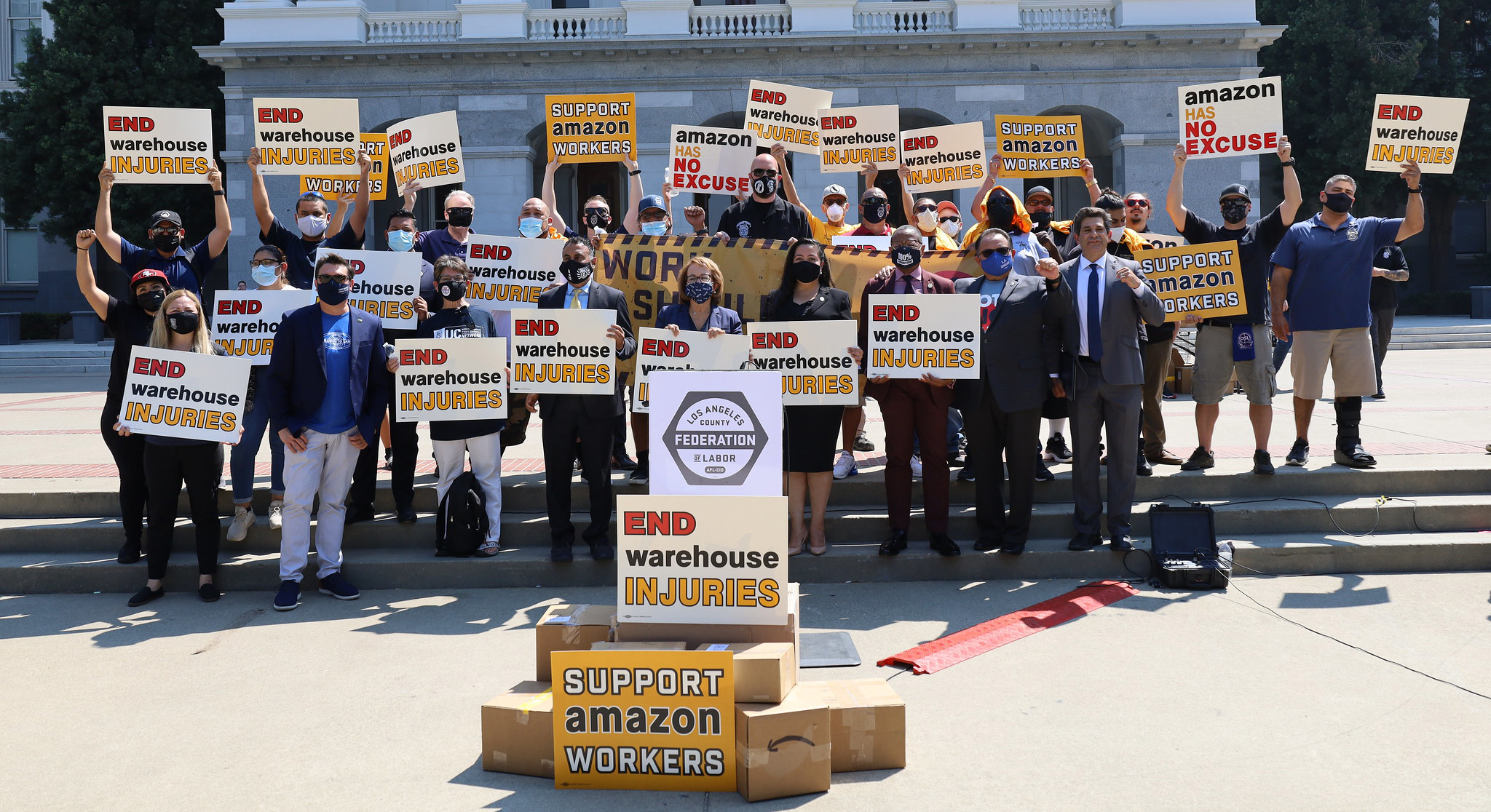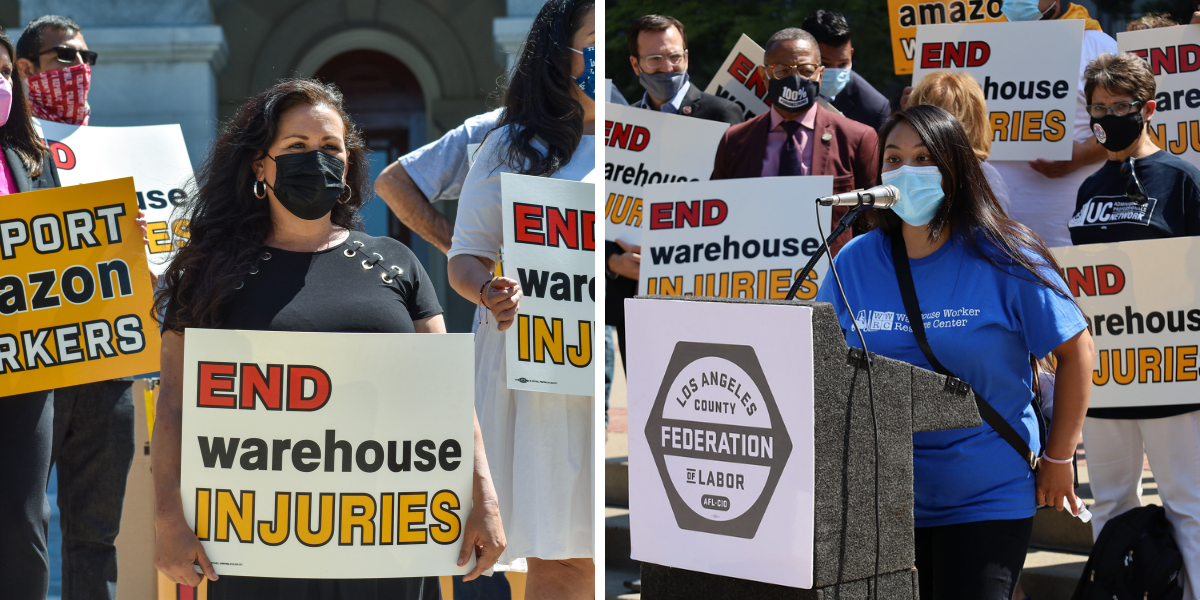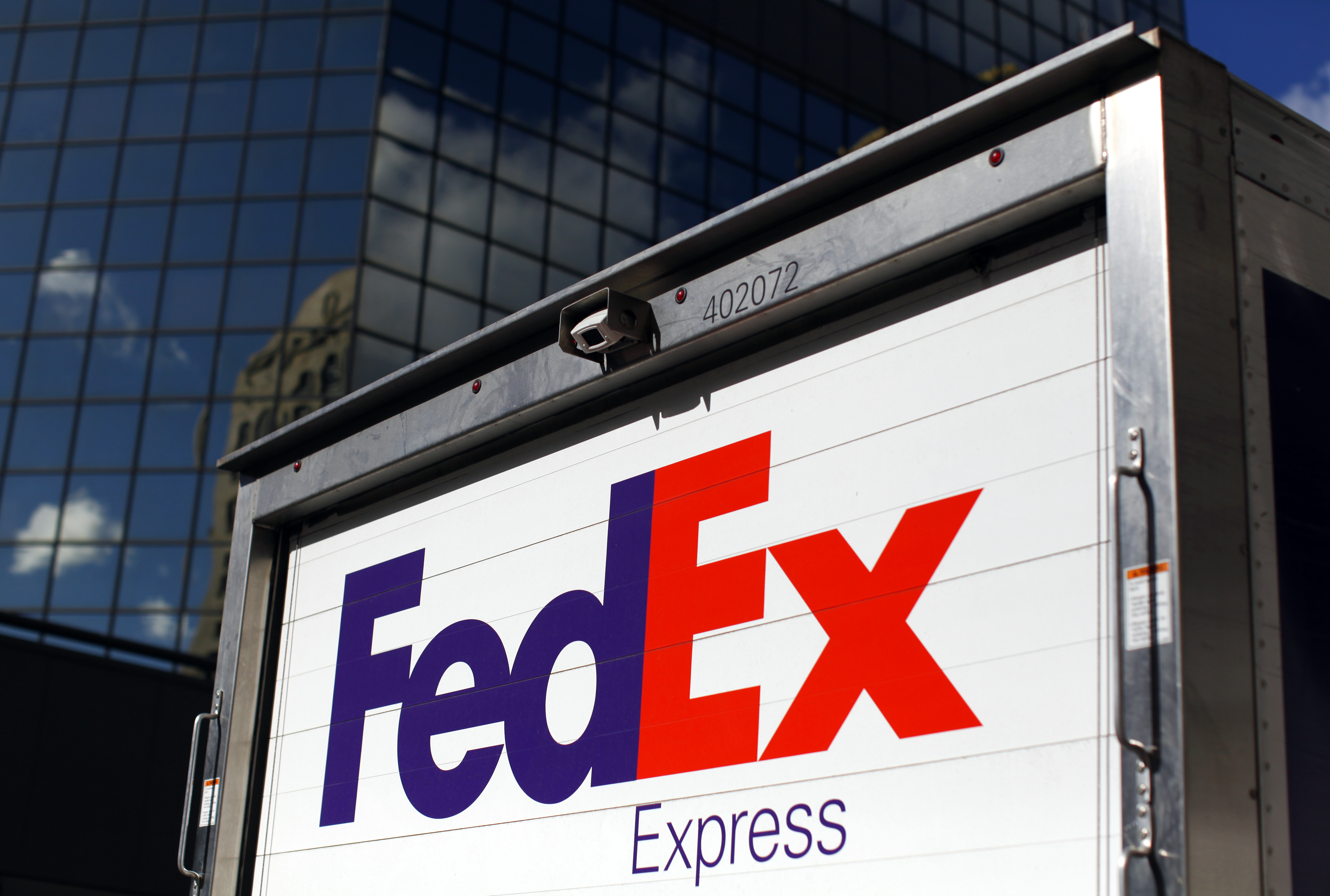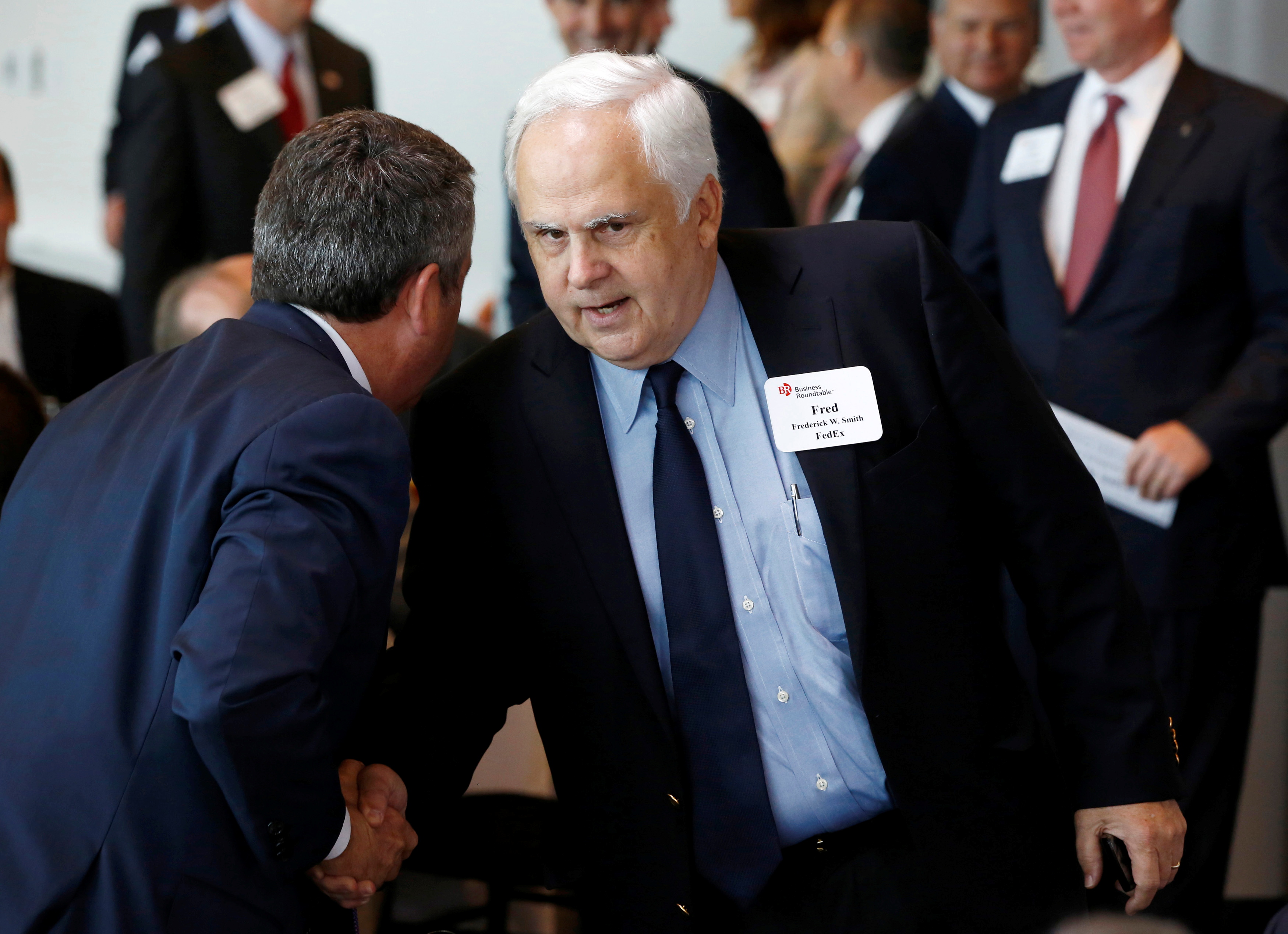Hello,
Yesterday, we had the honor of joining Governor Newsom, Assemblywoman Lorena Gonzalez, Senator Maria Elena Durazo, and leaders from all across our state in celebrating the signing of California’s nation-leading worker protection laws, including our policy, AB 701.
AB 701, the Warehouse Workers Protection Act, is the first of its kind and an initial step in addressing the reality of algorithmic work in our country. It will protect the over 250,000 frontline warehouse workers in California by requiring employers to disclose quotas while prohibiting them from penalizing workers for rest periods, bathroom breaks, and time complying with health and safety laws.
 Just as important as the policy, is the reason we took on this fight. The Los Angeles Labor Movement, and our partners across the Greater Los Angeles Area, had a front-row seat to the growing warehouse industry and the unchecked influence that corporate giants, such as Walmart and Amazon, have on our communities.
Just as important as the policy, is the reason we took on this fight. The Los Angeles Labor Movement, and our partners across the Greater Los Angeles Area, had a front-row seat to the growing warehouse industry and the unchecked influence that corporate giants, such as Walmart and Amazon, have on our communities.
Los Angeles is uniquely positioned in the global supply chain and integral to the movement of goods in the United States. Our ports are the busiest in the country with over 40% of all containers in the US coming through our shores. Our robust freeway and rail systems create the ideal infrastructure for the movement of these goods, goods that touch every single state in the US. The sheer size of the population of Los Angeles creates one of the largest markets in the country, incentivizing retail companies to create distribution centers and resulting in the Greater Los Angeles Area having the most warehouses in the country. Combined with our ever-growing dependence on e-commerce, especially during the pandemic, we are left with an ever-expanding workforce composed predominantly of workers of color.
 Over the last few years, we have heard from countless workers who told stories of dangerous working conditions and inhumane quotas resulting in debilitating injuries. Young workers, many of them heads of their households, were forced to twist, bend, and eventually break their bodies to meet the rising demand. It was clear to us that something had to be done and that Los Angeles was destined to take on the warehousing industry head-on.
Over the last few years, we have heard from countless workers who told stories of dangerous working conditions and inhumane quotas resulting in debilitating injuries. Young workers, many of them heads of their households, were forced to twist, bend, and eventually break their bodies to meet the rising demand. It was clear to us that something had to be done and that Los Angeles was destined to take on the warehousing industry head-on.
We would like to thank Gov. Newsom for signing the Warehouse Workers Protection Act and standing with warehouse workers, and Assemblymember Lorena Gonzalez for championing the bill. Her valiant efforts and steadfast determination made this historic policy a reality. Thank you to our partners, such as the Teamsters, the Warehouse Workers Resource Center, and LAANE, for helping us pass such an innovative policy that will protect workers into the future.
This is a victory for every worker who spoke up, engaged their representative, or joined one of our actions. We are proud to say that California stands firmly in its values and will continue to say, “Work shouldn’t hurt!”
In Solidarity,
Ron Herrera
President, Los Angeles County Federation of Labor, AFL-CIO

